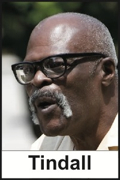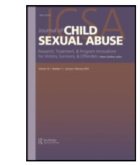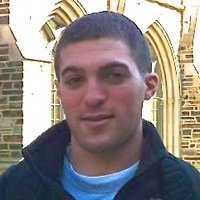Rascals case in brief
In the beginning, in 1989, more than 90 children at the Little Rascals Day Care Center in Edenton, North Carolina, accused a total of 20 adults with 429 instances of sexual abuse over a three-year period. It may have all begun with one parent’s complaint about punishment given her child.
Among the alleged perpetrators: the sheriff and mayor. But prosecutors would charge only Robin Byrum, Darlene Harris, Elizabeth “Betsy” Kelly, Robert “Bob” Kelly, Willard Scott Privott, Shelley Stone and Dawn Wilson – the Edenton 7.
Along with sodomy and beatings, allegations included a baby killed with a handgun, a child being hung upside down from a tree and being set on fire and countless other fantastic incidents involving spaceships, hot air balloons, pirate ships and trained sharks.
By the time prosecutors dropped the last charges in 1997, Little Rascals had become North Carolina’s longest and most costly criminal trial. Prosecutors kept defendants jailed in hopes at least one would turn against their supposed co-conspirators. Remarkably, none did. Another shameful record: Five defendants had to wait longer to face their accusers in court than anyone else in North Carolina history.
Between 1991 and 1997, Ofra Bikel produced three extraordinary episodes on the Little Rascals case for the PBS series “Frontline.” Although “Innocence Lost” did not deter prosecutors, it exposed their tactics and fostered nationwide skepticism and dismay.
With each passing year, the absurdity of the Little Rascals charges has become more obvious. But no admission of error has ever come from prosecutors, police, interviewers or parents. This site is devoted to the issues raised by this case.
On Facebook
Click for earlier Facebook posts archived on this site
Click to go to
Today’s random selection from the Little Rascals Day Care archives….
Click for earlier Facebook posts archived on this site
Click to go to
Today’s random selection from the Little Rascals Day Care archives….
‘How long, O Lord, will you forget me forever?’
 Sept. 12, 2012
Sept. 12, 2012
“Connie Tindall wanted to be pardoned before he died. But like Jerry Jacobs, Joe Wright and Ann Shepard before him, Tindall was buried Friday without knowing if the state of North Carolina will ever pardon members of the Wilmington 10.”
– From the Wilmington Star-News (Aug. 10, 2012)
Tindall died at age 62 – younger than Bob Kelly and Scott Privott. Will the Edenton Seven live long enough to see themselves exonerated?
Veteran journalist bought into Believe the Children
 Oct. 4, 2014
Oct. 4, 2014
Among those journalists who fell for the “satanic ritual abuse” storyline, none fell harder than Civia Tamarkin.
She not only stage-managed an embarrassingly credulous episode of “Nightline,” but also testified earnestly at a Believe the Children convention alongside Little Rascals prosecutor H. P. Williams Jr. and supposed ritual-abuse survivor Laura Buchanan (““ was told that a surveillance device would be inserted into my brain….”).
In 1993 Tamarkin delivered a lengthy address on “Investigative Issues in Ritual Abuse Cases” to the Fifth Eastern Regional Conference on Abuse and Multiple Personality in Alexandria, Va.
Like Ross Cheit two decades later, she had no trouble detailing numerous flaws in the prosecution of McMartin and other ritual abuse cases but inevitably came up frustrated in her search for a smoking gun or two. Most striking, after recounting all her journalistic fault-finding, was her unquestioning gratitude to SRA snake-oil theoreticians Roland Summit and Bennett Braun for “(taking) the time to teach me what they could.”
Prior to her affiliation with Believe the Children, Tamarkin had reported commendably for Time, People and the Chicago Sun-Times and had coauthored a book with Chicago educator Marva Collins.
More recently, she has directed a documentary on the aftermath of a soldier’s death in Iraq….
So what happened in the 1990s? How did an experienced reporter lose her skepticism in the face of “ritual abuse” claims?
I’ve asked Tamarkin what she was thinking then – and what she believes today – but haven’t received a response.
Faller, Everson resist trend toward skepticism
 Sept. 24, 2012
Sept. 24, 2012
The February 2012 special issue of the Journal of Child Sexual Abuse is devoted entirely to “Contested Issues in the Evaluation of Child Sexual Abuse Allegations.”
Ritual-abuse holdouts Kathleen Coulborn Faller and Mark D. Everson use the issue to vigorously push back against calls for greater diagnostic skepticism.
The object of their displeasure is “The Evaluation of Child Sexual Abuse Allegations: A Comprehensive Guide to Assessment and Testimony” (2009), edited by the late Kathryn Kuehnle and Mary Connell. Contributors to the Kuehnle-Connell volume advocate more reliance on forensic science and less on “unverified methods or conjecture” of the kind that enabled prosecution of the Edenton Seven. By contrast, Everson and Faller can be counted on to stretch the bounds of prosecution-worthy evidence, from finding “clinical usefulness” in anatomical dolls to granting universal credibility to child-witnesses.
From Everson’s response in the journal:
“Many critics of current forensic practice (emphasize) specificity over sensitivity…. Specificity (minimizing inclusion of false cases) and sensitivity (maximizing inclusion of true cases) are counterbalancing indices of decision accuracy. Favoring specificity over sensitivity means that overdiagnosing (child sexual abuse) is considered a more serious concern than failing to substantiate true cases of abuse….”
Yes, I’ll admit it: I consider the perils of overdiagnosis – putting innocent people in prison – much worse than those of underdiagnosis – letting a possible abuser go free, at least temporarily. However much Everson and Faller might wish otherwise, our system of justice does stipulate “reasonable doubt.”
Prosecutors must recognize vulnerability to cognitive flaws

mic.com
Michael Shammas
Nov. 17, 2016
“It’s no secret that we humans grant far too much confidence to our opinions. But when powerful people do this, the dangers compound. Zealotry replaces fair-mindedness. The worst excesses happen when prosecutors forget they’re flawed humans, like anyone else, and that as a result they’re subject to cognitive flaws like tunnel vision, racial bias, and the desire to reduce cognitive dissonance through ‘cognitive consistency’ even at the expense of complicated, nuanced, self-contradictory, paradoxical truth….
“Cognitive bias and overconfidence touch us all. Only a conscious awareness that we might be wrong can counter unthinking heuristics, biases, and schemas that lead to imperfect conclusions….
“Wisdom counsels not the confident use of power, but the wise use of power. The first step of wisdom is recognizing how little we know….”
– From “ ‘Making a Murderer’ Attorney Highlights Our Troubling Rate of Wrongful Conviction — and Suggests a Solution” by Michael Shammas in the Huffington Post (July 12)
And the latest on the still-imprisoned Brendan Dassey.
![]()











0 CommentsComment on Facebook